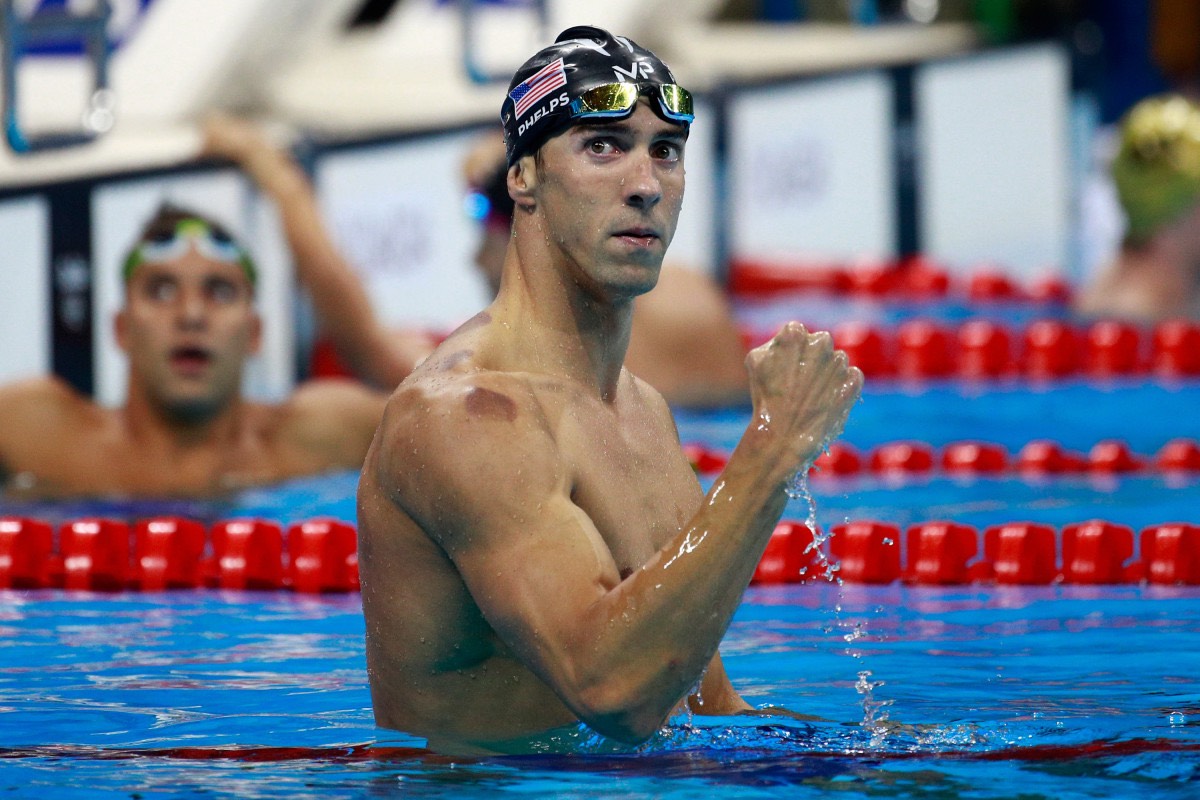Do you remember sports 20, 30 or 40 years ago? If you don’t, then look at the old competitions on YouTube. In those years, today’s records seemed something incredible. Did the athletes before were weaker and did not know the banal secrets of effective training? Or maybe doping is behind the high results? It is impossible to generalize, but often we are talking about the second option.
A lot of controversy is caused by the achievements of the famous Olympic champion M. Fred Phelps. Some sports fans believe that his records were made possible not only by his dedicated training and outstanding physique, but also by the use of illegal drugs, including commercially available steroids. This is just an opinion, not a known fact. There is too little open data on this subject. But we will try to get to the truth. Read on to find out more!
Short Biography of Michael Phelps
Michael started playing sports from an early age. He started going to training at the age of seven. In the 6th grade, doctors diagnosed him with attention deficit hyperactivity disorder. Sport has become a way to solve this problem. In addition to swimming, he played American football and baseball for a while. At the age of 12, Michael chose his favorite sport. The young man was not mistaken and at the age of 15 he fell into the sphere of interests of the US Olympic team coaches. He went to Sydney, where he showed a good result for his age (5th place in the 200 m). This was just the beginning. Very soon, Phelps submitted his first record. He received the title of Swimmer of the Year. He became the youngest record holder to swim the distance in butterfly style.
In 2003, the Baltimore Bullet (he received such nickname after the first enchanting victories) thundered at the World Championships in Spain. He climbed the podium 6 times (the swimmer received 4 gold and 2 silver medals). He returned home as the number one swimmer in the world according to the fans and the best amateur athlete according to the US National Sports Committee.
Michael went to the XXVIII Olympic Games with serious intentions. He made the decision that he wanted to break the previous record set by his compatriot Mark Andrew Spitz. This is a legendary athlete who became the most titled swimmer of the 1972 Olympics in Munich. The man won 7 gold medals and remained a record holder for many years. In 2004, neither Phelps nor anyone else could remove Spitz from his pedestal. However, 19-year-old Michael can definitely record the Olympics as an asset. He received 6 gold and 2 bronze medals. In Australia at the 2007 FINA World Championships, Phelps once again excelled. He replenished his piggy bank with 7 gold medals. The American also set 4 world records.
In China, at the 2008 Summer Olympics, Michael was able to make his dream come true. Spitz’s record has fallen. Phelps has risen to the top step of the podium eight times. This phenomenal swimmer has won prizes at different distances and styles.
Michael Phelps and Computer-Generated Shark
In the summer of 2017, “Flying Fish” (another nickname Phelps received from fans) hosted a great white shark competition. It was a unique show that aired on the Discovery Channel. Opponents were in unequal conditions. The white shark is much larger than a human. This is a very dangerous predator, meeting with which for many ends sadly. The miracle did not happen, and Michael lost the swimming duel. The man accelerated to 10 km / h, which is a lot for a water sprint. He used monofins (he put them on both legs), but even this did not help to defeat the marine predator, which is capable of speeds up to 40 km / h.
Not everyone can survive after swimming with a shark. How did the champion do it? The sea monster was modeled using computer technology. Haters accused the athlete of hype because the experiment was too unrealistic. Michael did not remain silent: “It is easy to complain and do nothing. I was satisfied by competing with the imaginary, “shark”. If someone pretends to pull such a trick with a real one, he/she is welcome. But it is impossible to force the fish to move in a straight line.” He also said that he would love to see such a show, but with a real shark. None of the critics dared to implement something like this.
He is not the first athlete who wanted to challenge the beast. Thrill-seekers, bloggers and just sports fans often pretended to compete with representatives of the wild, who are obviously much faster and stronger than humans. Sometimes the duels took place at the amateur level, and sometimes with the participation of scientists and television.
There are many reasons for such contests. Some people want to get rich, others want to earn fame, or just want spectacular performances. And many people are motivated by the desire to test their abilities. For example, Brian Habana, considered the fastest rugby player, in 2007 tried to lead the race with a cheetah (the fastest land creature). He expectedly lost to a wild cat. As for Phelps, he didn’t even think about the hype. Champion helped scientists analyze peak human abilities. It is very difficult to do this without an element of competition. In addition, the Discovery Channel popularizes science, and the fight between man and beast always attracts the attention of viewers.
Michael Phelps’ Diet
To maintain physical fitness, Michael Phelps always follows a diet. His daily diet has already become rumored. Someone wants to eat the same way as their favorite athlete, and someone is trying to convict a man of fraud. The swimmer’s menu really cannot be called very balanced and useful. During intense training, he consumed a triple serving of calories. He ate bread (sometimes pizza, cakes or burritos), high-fat mayonnaise, energy drinks, protein bars. There is one simple explanation for this. During training, Phelps spends a lot of energy. He subjects himself to heavy physical activity for about 30 hours a week.
The titled athlete’s breakfast comprised:
- Average 3 sandwiches, containing fried eggs, salad, onions, cheese, mushrooms, ketchup & mayonnaise
- Omelet made of five or six eggs
- A portion of oatmeal porridge with honey and berries
Three chocolate pancakes - A couple of French toasts served with powdered sugar and sour cream
- Two coffee cups (with milk or cream)
Lunch contained:
- Half a kilo of pasta with meat or seafood and tomato or bechamel sauce
- 2 huge hamburgers, comprising ham, bacon, cheese, cucumbers, and mayonnaise
- Energy drink
Dinner included:
- 500 gm of pasta with meat and some topping
- Large pepperoni or other pizza
- Energy drink
Swimming requires a significant amount of energy, so carbohydrates form the basis of its nutrition. He tries to keep a balance between fast (sweet drinks, bars, cakes, sugar) and slow (bread, cereals, pasta) carbohydrates. It’s fuel for the body. They can be compared to gasoline in an internal combustion engine. This high-calorie diet is quite suitable for a professional athlete. However, ordinary people should avoid such food. An excess of fats and carbohydrates can provoke diseases of the cardiovascular system and even cancer.
Is the American Swimmer Clean (Natural)?
Before each competition, Michael Phelps underwent doping tests. Athletes go through the strictest control before participating in the Olympics. The swimmer was not convicted of unsportsmanlike conduct. Illicit drugs, such as growth hormone and boldenone, were not found in his blood. Most likely at the peak of his career, he did not take steroids. There is also no reliable evidence that Michael Phelps is currently taking steroids.
The Opposite Point of View: Michael Phelps is on Steroids
Until proven otherwise, no one can officially accuse Phelps of using steroids. It is worth proceeding from the position that it is clean. However, doubts about the source of strength for records are understandable. Michael has superhuman strength, and doping scandals are no longer a rarity in professional sports.
Here’s one of the examples. In 2012, the Chinese girl, Ye Shiwen, won the women’s 400m individual medley at the Olympics and showed a new world record. Shiwen swam the final 50 meters faster than Ryan Lochte (the US) and showed in this gap the result of 28.93 seconds (Lochte showed 29.10). After that, Ye Shiwen won at a distance of 200 meters. Executive Director of the International Swim Coaches Association (ISCA) John Leonard, an American by birth, said that the results of Shiwen look suspicious. One US swimming coach, who preferred to remain incognito, confessed that he did not want to blame Ye Shiwen for doping, but “her results do not match the data I know about physiology.” The president of the China Anti-Doping Agency (CHINADA), Jiang Ji, was furious with Leonard’s statements. “Some people are just prejudiced, we do not question anyone, how did Michael Phelps win eight gold medals in Beijing,” he said.

